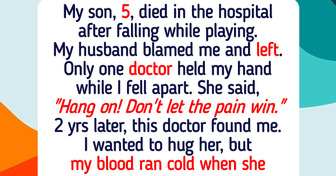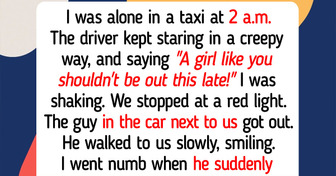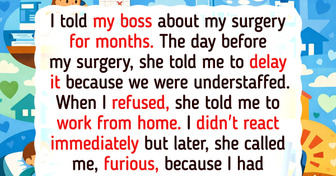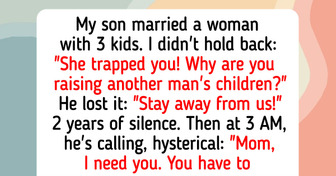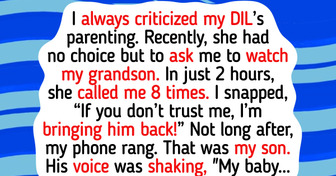I Ran Away From Our Family Vacation After My Son Gave Me an Insulting Ultimatum
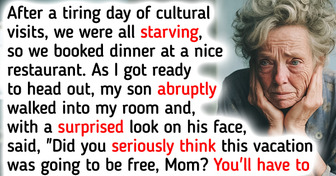
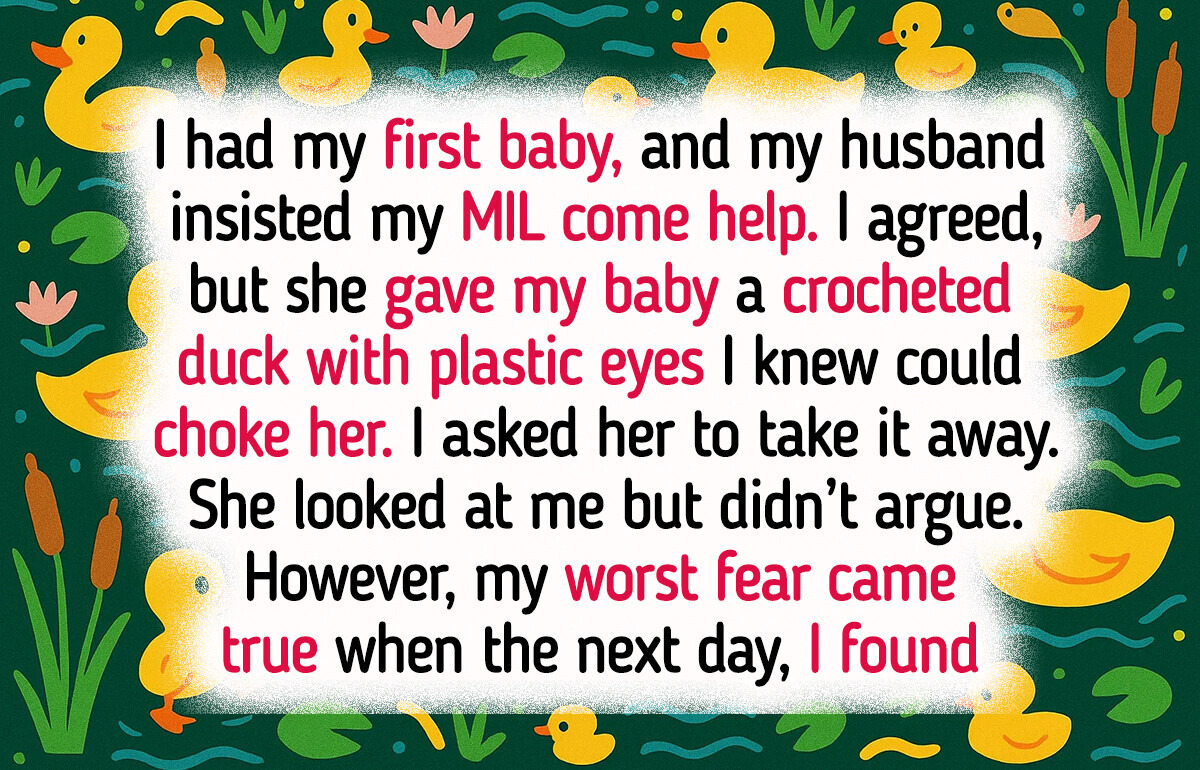
Sometimes, the most painful moments in motherhood aren’t the sleepless nights or the endless crying — they’re the moments when your voice is dismissed, your instincts are questioned, and the people closest to you make you feel like a stranger in your own home. Today’s story comes from Laura, a first-time mom who thought she had support from her husband and his family.
But what began as a thoughtful gesture from her MIL soon turned into a quiet, persistent battle — one that left Laura wondering if anyone was truly on her side. A soft toy. A firm boundary. And a silence that cut deeper than any argument. Read her full confession below.

Hi. My name’s Laura, I’m 31, and three months ago, I became a mom for the first time. I wanted to write something joyful. I thought I’d be sharing the highs and lows of new motherhood — the sleepless nights, the tiny socks, the way your heart explodes every time your baby breathes. But instead, I’m writing about a duck.
Yes. A duck.
After our daughter was born, my husband Mike suggested his mom stay with us for a while to help out. Her name’s Carol. She had always seemed warm and excited about becoming a grandmother. And I said yes. Honestly, I was grateful for the help.
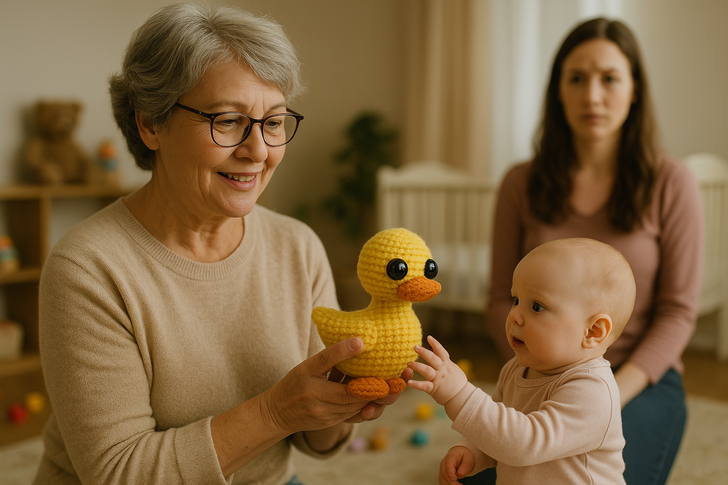
At first, everything went smoothly. She cooked, she helped with laundry, she held the baby so I could shower. I really thought I’d lucked out.
Then one morning, I walked into the nursery and saw a small crocheted duck in the crib. It was clearly handmade — Carol’s style, no doubt. It was cute, until I noticed the big plastic eyes. They were loose. One tug and they’d pop off. I felt my stomach turn. All I could think about was our daughter choking.
I thanked her for the gesture and gently said it wasn’t safe. She nodded, said she understood. I thought that was the end of it.
But a few days later, the duck was back.
I brought it up again — calmly — and reminded her about the risk. Carol smiled and said it was “secure.” I didn’t agree. I told her to take it away. She gave me a dirty look and took it away.
And then... it came back.
It became this twisted cycle. I’d find the duck in the crib, remove it, and somehow it would return. Like it was mocking me. Or worse — like she was.
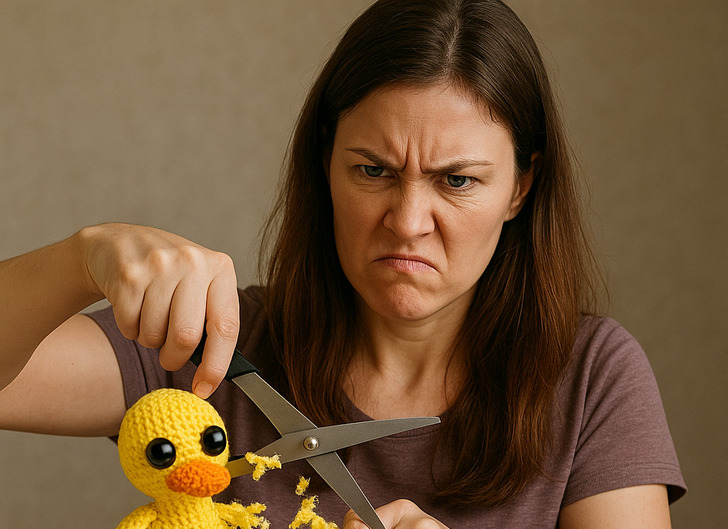
And then one morning, my worst fear came true when I found the duck, gave it a gentle squeeze — and one of the plastic eyes popped clean off.
That was it. My hands started shaking. Not from rage, but from something deeper — the kind of anger that comes after being ignored for too long. The kind that simmers. The kind that finally breaks.
I didn’t scream. I didn’t slam doors. I walked to the kitchen, grabbed a pair of scissors, and sliced that duck into pieces. Quietly. Deliberately. And I left the remains — frayed yarn, black plastic eyes, limp little wings — on Carol’s neatly made bed.
Later that afternoon, the air in the house turned cold. Heavy. Like a storm waiting to hit.
Carol cried. Real tears. And she went straight to Mike. He pulled me aside, face tight with anger. But he didn’t ask what happened. He didn’t ask if I was okay.
He said, “You hurt my mother.”
That I had “destroyed something made with love.”
That I was jealous.
That Carol was a better mother than me.
And she just stood there behind him, clutching the scraps of that duck like a wounded saint, whispering, “It was just a gift. A little love for the baby... I can’t believe she would do something so cruel.”
Cruel. That’s what they called me. Meanwhile, I’ve been giving everything to this child. My body, my sleep, my sense of self. I’m surviving on caffeine, hormones, and 30-second showers. And when I dared to protect my daughter from a choking hazard, I was treated like a monster.

I didn’t destroy a gift. I enforced a boundary — one I had explained kindly, patiently, over and over again. That duck wasn’t safe. That’s not paranoia. That’s parenting.
But no one listened. No one saw me. So yes, I destroyed the duck. Because maybe destruction was the only language anyone would finally understand.
My husband doesn’t even talk to me anymore. He only speaks with his mother, and they laugh together, leaving me alone in this silence that weighs heavier every day.
I’m not asking for pity. I just want to know if anyone else has felt this — being called “unstable” for doing the one thing a mother must do: protect her child.
Because right now, I feel utterly alone, like the only person who sees how broken this all is.
Thank you for listening.
— Laura
Thank you, Laura, for sharing your story so openly and bravely. We know it’s incredibly hard to go through something like this feeling unseen and unheard. We truly appreciate your courage in speaking your truth.
Here are some suggestions that might help you navigate this difficult situation:
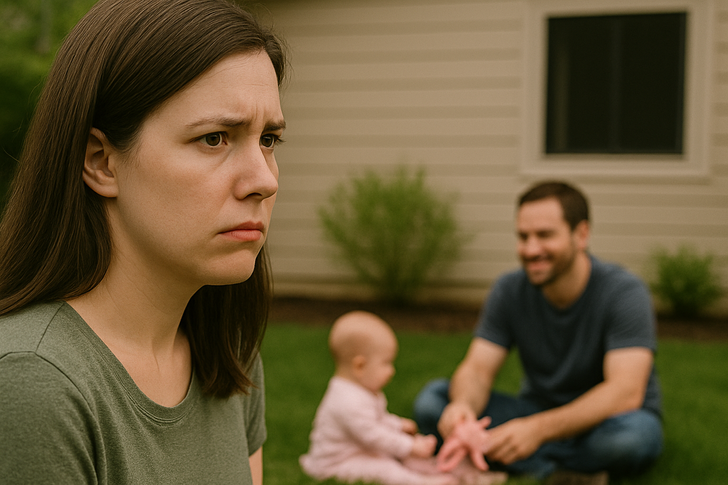
You deserve to feel heard, respected and safe. Relationships are complicated, especially when love, history and children are involved. But one truth remains simple: A love that hurts you isn’t really love at all.
What do you think? Was Mike’s behavior a red flag? Have you ever made a sacrifice or a heartfelt gesture that was dismissed? How can you tell if something small is actually a sign of something more serious? If Laura’s story resonated with you, you might be interested in reading this other article, which tells another story about invisible lines being crossed in plain sight.

